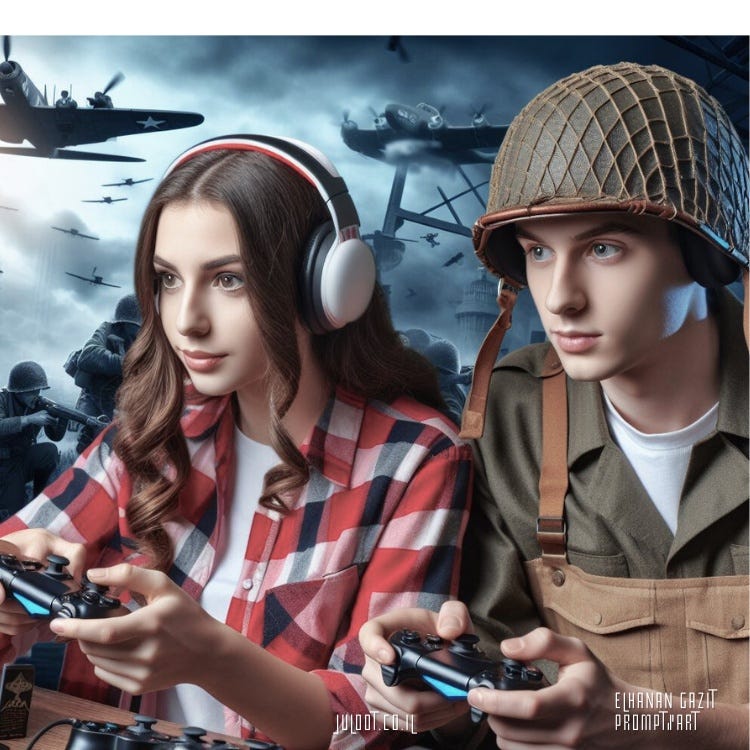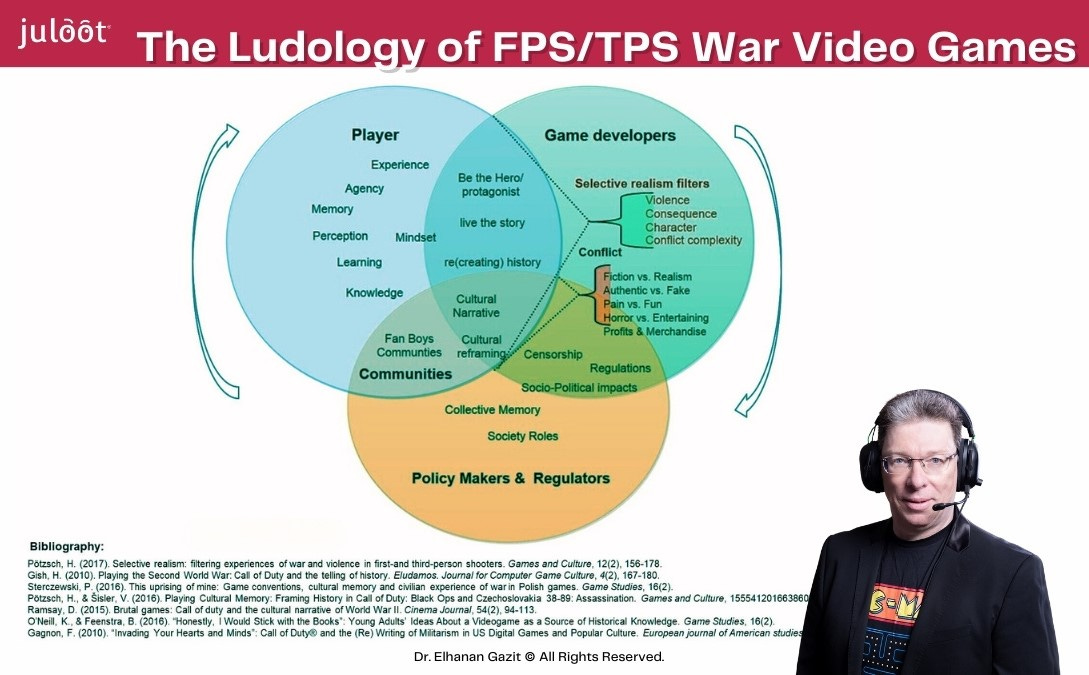The Pixelated War History
How do video games influence war memories and narratives?
"Each generation has to learn how to use the tools that affect the generation," noted HaRav Kook1. Reflecting on his insight, we delve into how modern gaming and immersive technologies, like AI, VR, AR, and Spatial Computing, influence our understanding of history. Let's start:
By highlighting the power of gaming in shaping historical memory, we can empower gamers to understand their role in preserving historical narratives. Video games have emerged as potent mediums for storytelling, particularly in representing significant events like the Holocaust. That underscores the influential role of gaming in shaping historical consciousness.
All Wars: A Triptych of Battlefields
Viet Thanh Nguyen2 eloquently stated in his non-fiction book 'Nothing Ever Dies: Vietnam and the Memory of War (2016): "All wars are fought twice, the first time on the battlefield, the second time in memory."
Expanding on Nguyen's profound insight, I argue that gaming shapes historical memory. Thus, I propose amending Nguyen's statement:
"All wars are fought three times: the first time on the battlefield, the second time in memory, and the third time in video games."
Video games like "Call of Duty" and "Battlefield" construct narratives that affect how we perceive historical events. However, their focus on combat may overshadow broader historical contexts. This influence extends beyond individual gamers, potentially shaping societal perceptions and policies.
Unveiling the Secrets of War Video Games Ludology
Various stakeholders, including developers, gamers, and regulators, interact to shape the narrative of historical events in games. Fan communities and modders further contribute to this discourse, sometimes challenging established narratives.
However, there's a delicate balance between historical accuracy and engaging gameplay. Gaming companies often prioritize commercial success over historical fidelity, leading to debates over representation, as seen in games like "Enemy Front."
Moreover, game developers avoid the horrors of war. The brutality, trauma, and human suffering inherent in conflicts are often toned down or abstracted to make games enjoyable. They use selective realism filters that distort our perception of war, emphasizing action and heroism over the grim reality.
There are game creators who bear the responsibility of handling historical content with care, as demonstrated by games like "The Light in the Darkness," which confronts the Holocaust directly.
Navigating the Post-Truth AI Era
Now, overlay this triptych with the post-truth AI era. History, once inscribed by ink and memory, now dances with algorithms. Machines sift through archives, curate narratives, and present them to a global audience. But the truth is elusive. AI, while powerful, lacks conscience. It churns out information, sometimes factual, sometimes distorted. As society grapples with this digital deluge, we must wield our critical eye as a compass.
In integrating HaRav Kook's wisdom, we acknowledge the need to understand and harness gaming's influence for positive educational purposes. By doing so, we honor the past, shape the present, and influence the future, ensuring that the memory of the Holocaust is preserved with integrity and reverence.
Furthermore, we, as parents, play a vital role in mediating the impact of video games on our children. By facilitating thoughtful discussions and fostering critical thinking, we can ensure that our children engage with gaming content responsibly, thus preserving the legacy of the Holocaust with the solemnity it deserves.
"To forget would not only be dangerous but offensive; to forget the dead would be akin to killing them a second time. For in the end, it is all about memory, its sources and magnitude, and, of course, its consequences"—Elie Wiesel3.
Let's take action together and ensure that history lessons are remembered. Together, we can amplify our impact. Let's commit to engaging with gaming and immersive technologies in a way that honors the past and shapes the future. Responsible engagement with these tools is urgent to preserve historical memory. How can we use these tools responsibly? Share your thoughts in the comments below.
💫 Think Fast, Level Up Smart.
Thank you for reading this newsletter. If you liked it, please share it with a friend who might benefit from it. I welcome your comments and suggestions below. You can find me on LinkedIn, Facebook, and Instagram.
Abraham Isaac Kook, R.I.P. (1856-1935), known as HaRav Kook, and also known by the Hebrew-language acronym Hara'ayah, was an Orthodox rabbi and the first Ashkenazi Chief Rabbi of British Mandatory Palestine.
Viet Thanh Nguyen is a Vietnamese-American professor and novelist, Pulitzer Prize winner for Fiction (The Sympathizer, 2016).
Eliezer "Elie" Wiesel, R.I.P. (1928-2016) was a Romanian-born American writer, professor, political activist, Nobel laureate, and Holocaust survivor.



